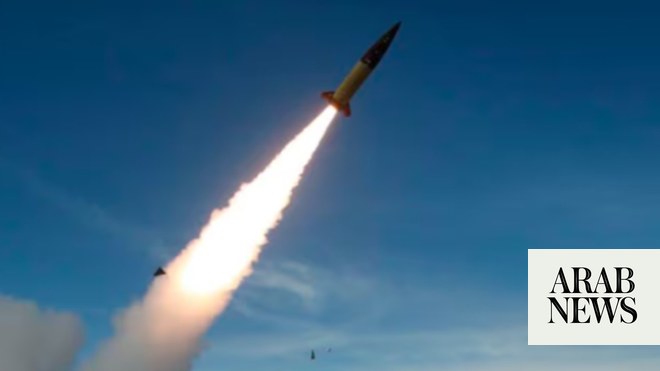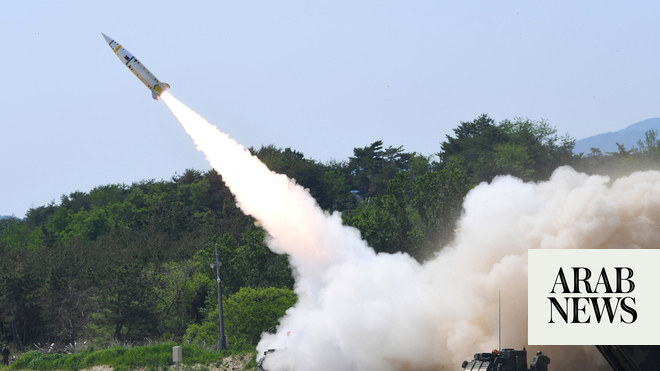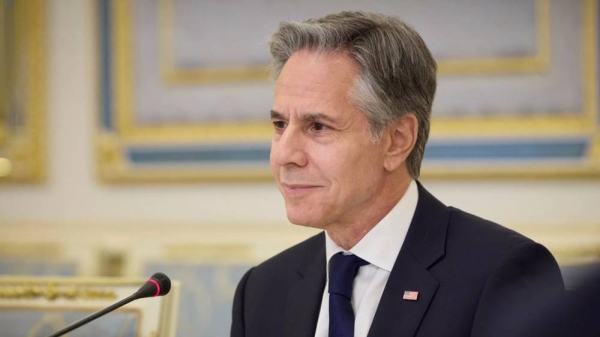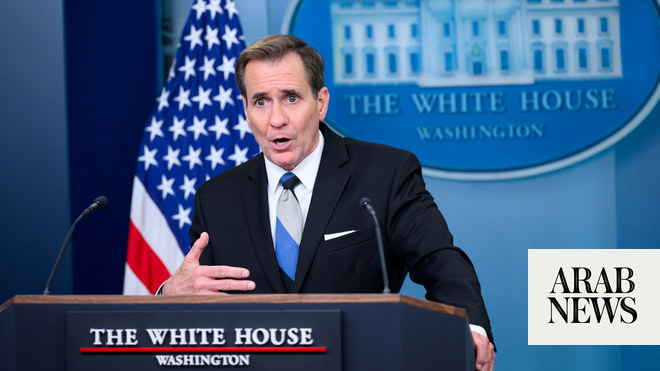
The US secretary of state, Antony Blinken, gave his strongest hint yet that the White House is about to lift its restrictions on Ukraine using long-range weapons supplied by the west on key military targets inside Russia, with a decision understood to have already been made in private.
Speaking in Kyiv alongside the UK foreign secretary, David Lammy, Blinken said the US had “from day one” been willing to adapt its policy as the situation on the battlefield in Ukraine changed. “We will continue to do this,” he emphasised.
Blinken said he and Lammy would report back to their “bosses” – Joe Biden and Keir Starmer – after their talks on Wednesday with the Ukrainian president, Volodymyr Zelenskiy.
The foreign secretary suggested Iran’s dispatch of ballistic missiles to Moscow – revealed this week – had changed strategic thinking in London and Washington. It was a “significant and dangerous escalation”, he said.
He added: “The escalator here is Putin. Putin has escalated with the shipment of missiles from Iran. We see a new axis of Russia, Iran and North Korea.” Lammy urged China “not to throw in its lot” with what he called “a group of renegades”.
British government sources indicated that a decision had already been made to allow Ukraine to use Storm Shadow cruise missiles on targets inside Russia, although it is not expected to be publicly announced on Friday when Starmer meets Biden in Washington DC.
The two leaders are planning to discuss the war in Ukraine, and how it could be ended, as part of a wide-ranging foreign policy discussion, though they will avoid an intense focus on any individual weapons system, as the aim of the conversation is strategic.
No press conference is scheduled during what is expected to be a short visit, Starmer’s second to the US as prime minister, after which there may be further conversations over the weekend to update key European allies on the discussions.
Wednesday’s joint visit to Kyiv by Blinken and Lammy to meet Zelenskiy would not be taking place had there been no positive decision regarding Storm Shadow, the sources added.
But it would be considered unnecessarily provocative to make a public announcement about long-range missiles in Kyiv. It is also likely there will still be restrictions around Ukraine’s use of the missiles, which have a range of at least 190 miles, to avoid reckless or unnecessary attacks.
Speaking in Kyiv, Lammy said he would not reveal details of private discussions that might hand Putin an advantage. He denounced the Russian leader’s “sinister” invasion of Ukraine and accused him personally of “arrogance and greed”.
“This is imperialism. This is fascism,” he said.
Ukraine has been lobbying for months for permission to hit airfields, missile launchers and command and control centres deep inside Russian territory. Speaking to the Guardian in May, Zelenskiy said Biden’s equivocation and incremental approach had cost lives. It allowed the Kremlin to “hunt” Ukrainians, he complained.
Zelenskiy urged the president to overcome his perennial worries about nuclear escalation. The US should “believe in us more”, he stressed, saying of Russia: “We have to respond. They don’t understand anything but force.”
Blinken and Lammy arrived in Kyiv on an overnight train from Poland. They had come to reiterate “ironclad support for Ukraine”, Lammy posted on X. “We must stand up to Vladimir Putin’s imperialism. Our collective security depends on it.” Russia’s attacks on civilians were “horrific, barbaric, unbelievable”, he commented.
The trip came 24 hours after Blinken confirmed in London that Tehran had shipped new deadly ballistic missiles to Russia. In Kyiv, Blinken said he was delivering a strong message that Britain and the US were committed to Ukraine’s “success” and “victory”.
Speaking at a joint press conference, Lammy described the UK’s backing for Ukraine as an enduring “hundred-year partnership”. He said the government was providing a new package of military assistance including Brimstone missiles and AS-90 self-propelled guns.
“We recognise what is at stake: not just the liberty of Ukraine but the security of Europe and the west,” Lammy declared.
There was growing anticipation in Kyiv that the US and UK would finally lift their objections to long-range strikes. “Hoping to hear a long-awaited decision to allow us to hit Russia with Atacms,” the MP Kira Rudik said. “Fingers crossed,” Andriy Zagorodnyuk, Ukraine’s former defence minister, remarked.
Asked if long-range weapons would make a difference, at a time when Russian troops were gaining towns and villages in the eastern Donbas region, he replied simply: “It is a big deal.”
Ukrainian officials had previously expressed frustration that the new Labour government in the UK had not been more robust on the issue, and had waited for the White House to amend its red lines. The US state department has reportedly been open to Kyiv’s request, with the Pentagon and some in the US intelligence community sceptical.
In May the US allowed weapons such as Himars artillery to be used within Russia’s border regions for the first time. This followed a Kremlin offensive into the Kharkiv region and the Ukrainian city of Vovchansk.
This week senior Democrats and Republicans in Washington urged the White House to go further. In a letter, a group of senators called on Biden “to immediately end” his administration’s “limitations” on the use of long-range missiles provided by the US and its Nato allies.
Without this, Kyiv would “struggle to achieve victory” and suffer “death, loss and hardship” as Russia capitalised on the policy and continued to pound Ukraine, it said. “We need to remove the handcuffs and give Ukraine every advantage,” the Republican senator Roger Wicker said.
The senators argued “sophisticated” western weapons would make a difference and force Russia to defend its “rear”. They said delays by the White House in the provision of Abrams tanks, F-16s and other US weapons were “regrettable”.
Speaking in Germany last week, the US defence secretary, Lloyd Austin, said long-range strikes would not turn the tide of the war in Ukraine’s favour. He said that Russia had already moved its glide bombs back beyond the range of the US Atacms long-range systems.
Austin said Kyiv had developed capabilities to hit targets beyond the reach of Anglo-French Storm Shadow missiles. Ukraine has used domestically produced long-range drones to strike Moscow and beyond.
Its operations have been increasingly successful. On Monday a drone attack shut three of Moscow’s airports. Another strike earlier this month damaged an oil refinery on the outskirts of the capital. There were reports on Wednesday that drones had targeted an airbase in Murmansk, in Russia’s Arctic circle, 1,100 miles (1,800km) from Ukrainian lines.
Matthew Savill, the director of military sciences at the defence thinktank Rusi in London, said Ukraine had not briefed allies in advance about its surprise incursion in August into Russia’s Kursk region. “It changed the debate about escalation and the use inside Russia of long-range weapons,” he said.
He cautioned that it would be “very, very hard to knock out” Russian airbases, which were “mostly lots of concrete” and “hundreds of kilometres” beyond the frontline. Atacms missiles with cluster bomblets would be more effective than non-cluster-armed Storm Shadows, he suggested.
In Moscow, the deputy foreign minister Sergey Ryabkov said Russia would destroy any new Atacms deliveries, the state news agency Tass reported.












